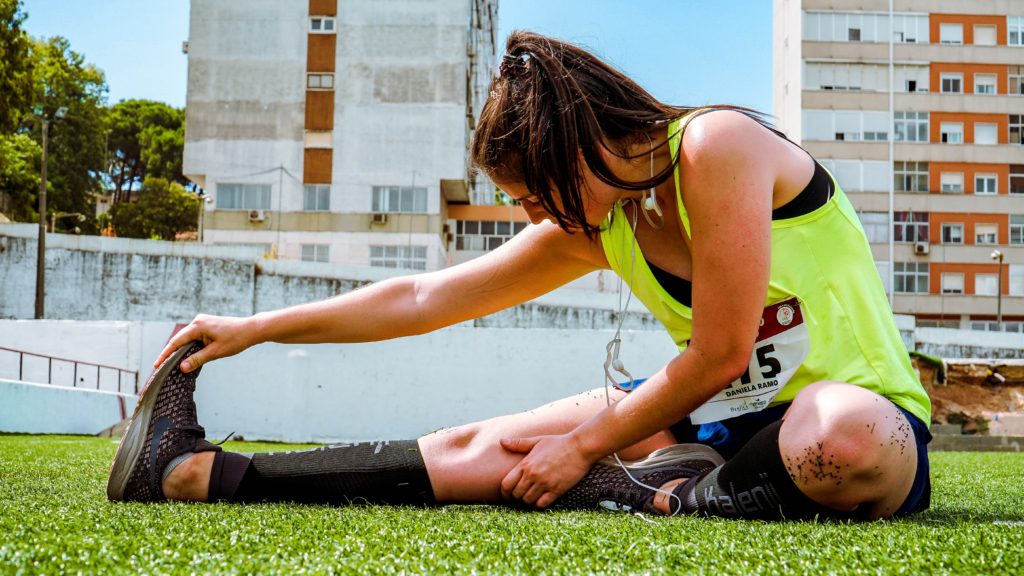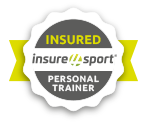Home » Fitness Blog » Maximise Your Recovery for Better Training Results
Maximise Your Recovery for Better Training Results

We’ve all heard that recovery is an important part of training, but some of us can be so focused on the workout that we tend to forget that all the adaptations we desire from training such as gaining muscle, building strength etc. happens when we’re recovering. Depending on the intensity and type of training it can take 48-72 hours for our muscles to repair themselves, and not giving them enough time can actually slow down your gains and lead to issues such as injury.
This, as you probably know, defeats the purpose of weight training.
To maximise your workout goals, it’s important to implement a real recovery strategy so that even when you’re not lifting weights, your muscles are getting stronger. Many of the recovery strategies not only help you build muscle, but they also contribute to your overall health and mental well-being.
Here are some proven methods for helping muscle repair:
Manage Your Stress Levels
Remember training is a stressor, like any stressor it can accumulate and become a negative factor. We have lots of other stresses in our lives, work pressure, relationships, family etc. If you have a lot of things going on at once, layering in lots of hard training could easily tip towards the negative side of things. So considering your overall stress levels is an important thing to consider. If you have a deadline in 2 weeks and you’re working late most nights, trying to squeeze in your 4 sessions might not be the most sensible thing to do. Switching to a couple of walks could be a more sensible approach. Or if you like to train regularly but you overload your week with lots of sessions to keep your weekend free you might be putting time pressure and additional stress into an already packed week, knowing that more training isn’t the answer. The key is to be able to recover and go again at a bigger output, so dropping a session out could actually be beneficial.
Finding ways to manage your stress will lead to overall health improvements. We can’t avoid stress altogether, and sometimes stress is not always a bad thing. So, how can we manage stress in healthy ways? Flexing this skill can significantly improve your recovery time and can also contribute to fat loss, better digestion, improved mood, and increased productivity.
Try these stress-management techniques:
- Start your day off right: Take Hal Elrod’s advice and follow the Miracle Morning routine. In his book, The Miracle Morning: the Not-so Obvious Secret Guaranteed to Transform Your Life (Before 8 am), he lists out a simple morning routine that involves six essential steps that can significantly boost your productivity: silence, affirmations, visualization, exercise, reading, and scribing.
- Meditation: Sit quietly and focus on your breath or take advantage of the thousands of free guided meditations out there. Meditation can be relaxing, which reduces stress and helps you not sweat the small stuff. Taking a long breath in through your nose and out your mouth can also feel instantly calming.
- Consider a digital detox: Our phones restrict our ability to be present in the moment. And the constant scrolling, notifications, and alerts can lead to elevated levels of stress (not to mention what the blue light can do to our quality of sleep). Being less plugged in can reduce our overall stress.
- Sleep better: If you’re weight training, getting enough sleep is essential, as that’s the time when your muscles do the bulk of repairing and rebuilding. Take a look at our solutions for a better night’s sleep.
Eat and Drink Your Way to Recovery
What to Drink
Even if you aren’t working hard at the gym, drinking lots of water will boost your body’s individual functions. But replacing your fluids is even more important if you’re in a weight-training program. People always say that the magic number you need to be drinking is eight cups a day, but if you’re sweating at the gym, this number will increase. Drinking enough water is essential for muscle recovery, so while it’s almost cliché to tell you to drink more H2O, it happens to be incredibly important.
Water isn’t the only liquid to consider drinking in post-workout recovery. Try adding tart cherry juice to your diet. This juice has been shown to reduce inflammation and muscle soreness. To avoid consuming too much sugar, try to find an unsweetened variety.
What to Eat
To support muscle recovery, try to eat a well-balanced diet of unprocessed foods. Avoiding carbs or other macronutrients is often counterproductive if you’re not getting the right nutrients your muscles need to repair themselves in recovery time. The simplest food is often the best: a mix of fruits and vegetables, whole grains, and 1.8 to 2.2 grams of protein for every kilo you weigh.
It can be tempting to load up on packaged snacks purporting to be health food, but while these foods may add protein and fibre into your daily intake, they’re also packed with sugar, cholesterol, and chemical stabilizing agents.
If you’re not sure what foods you should include in your diet and what foods you should avoid, check one of my recipe packs for guidance.
Avoid Unhealthy Habits
It goes without saying that doing things that are bad for your body are going to affect your recovery process. Remember that during your recovery days, your body is working hard to repair and rebuild tissue so that your muscle grows bigger and stronger. Habits like smoking and drinking too much alcohol can slow down this process, and alcohol consumption alone can get in the way of protein synthesis. We’re not telling you to eliminate these things altogether (but you really should quit smoking), but we do suggest limiting your intake or think about your timing. On days you have trained hard and pushed yourself in the gym, the key is to prioritise recovery and sleep, so keep alcohol low or away from training days to make sure you get enough rest.
Incorporate Pro-Athlete Techniques
Athletes all over the world apply these recovery techniques, which has helped them recuperate from periods of intense physical training. You can find many of these therapies available near you or try some variation of them at home:
- Massage: Deep tissue massage can reduce delayed onset muscle soreness
- Wearing compression wraps and stockings: A study has found that compression garments increase blood-flow while decreasing inflammation.
- Contrast water therapy: Jumping into an ice bath after being submerged in hot water boosts circulation and mitigates muscle soreness.
When in Doubt, Talk to Your Personal Trainer
Whether you’re at the start of your workout goal or you’ve been hitting the gym for a while and aren’t satisfied with your results so far, a personal trainer can provide expert advice on how to hit those targets both at the gym and while in recovery mode. Contact me today to learn more about my online personal training.


